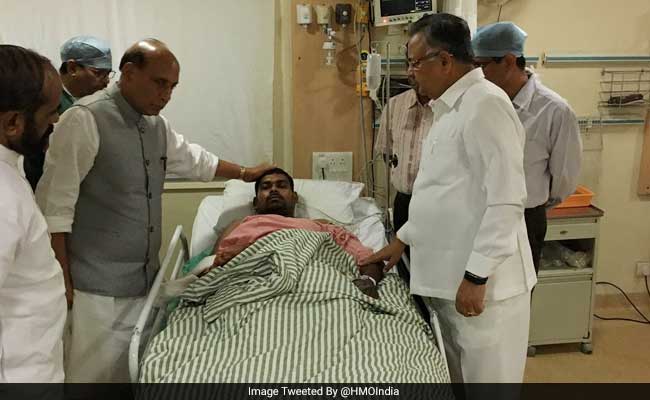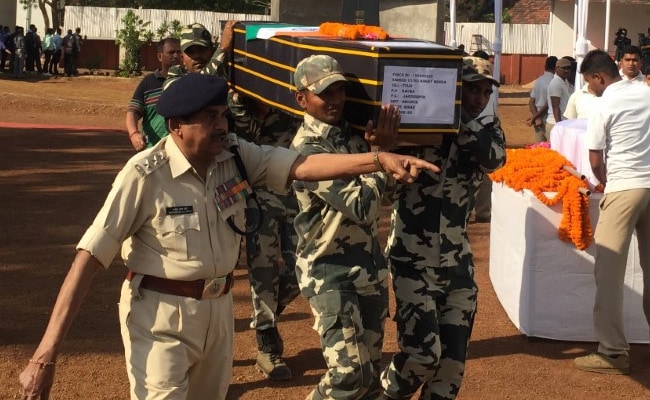Sukma Maoist attack: Home Minister Rajnath Singh expressed pain over killing of CRPF men in Chhattisgarh
Quick Take
Summary is AI generated, newsroom reviewed.
25 paramilitary (CRPF) commandos killed in Chhattisgarh
Ambushed by nearly 300 Maoists who were heavily armed
CRPF's sacrifice not in vain, attack was cowardice: Home Minister
The Home Minister visited them in hospital and said they are out of danger.

Maoist attack in Chhattisgarh's Sukma: "It's an act of desperation," says Rajnath Singh
The soldiers were guarding road workers in the Sukma district, a hotbed of insurgent violence, when they came under heavy fire.
Prime Minister Narendra Modi last evening condemned the attack and offered condolences to the families of the deceased, saying the sacrifice of their loved ones would not be in vain. "Attack on @CRPFIndia personnel in Chhattisgarh is cowardly and deplorable. We are monitoring the situation closely," he posted on Twitter.

Sukma, heavily forested, is a stronghold for Maoists waging war from their jungle bases.
Sukma, heavily forested, is a stronghold for Maoists waging war from their jungle bases. "They use adivasis (tribals) as their shield to prevent development," said the Home Minister. Other senior officials like Chief Minister Raman Singh also underscored that Maoists oppose efforts to build new roads and infrastructure in the remote area because it promotes the state and defeats their cause.
The Maoist insurgency started as a peasant uprising in 1967, and since then has cost thousands of lives in the rebel-dominated "red corridor" stretching through central and eastern India.
PM Modi had been seeking to stem the insurgency by earmarking development funds for revolt-hit areas and improving policing. In 2015, he urged Maoists to put down their guns and take up ploughs, saying "violence has no future".
Track Latest News Live on NDTV.com and get news updates from India and around the world

